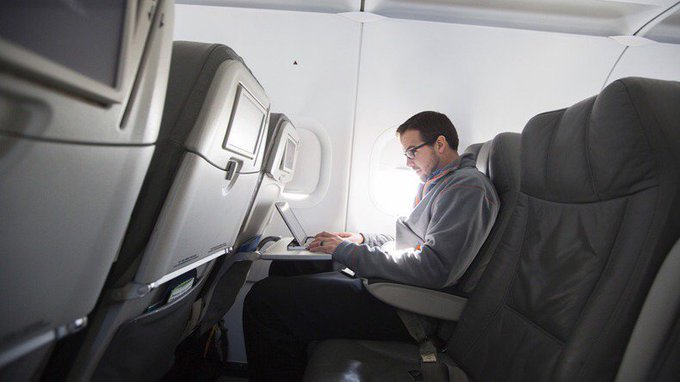US electronics on flights ban may not be just about security
March 23, 2017 in News by RBN Staff

Earlier this week, the US government banned tablets, laptops or any communication gadgets larger than a smartphone from being brought to the cabin of planes on specific flights.
The restriction affects flights to the US from ten international airports in the Middle East. Those airports include the cities of Cairo, Egypt; Amman, Jordan; Kuwait City, Kuwait; Casablanca, Morocco; Doha, Qatar; Riyadh and Jeddah, Saudi Arabia; Istanbul, Turkey; and Abu Dhabi and Dubai, United Arab Emirates.
US authorities said the measure is the result of intelligence showing a risk for terrorist activity involving commercial aviation.
“Evaluated intelligence indicates that terrorist groups continue to target commercial aviation and are aggressively pursuing innovative methods to undertake their attacks, to include smuggling explosive devices in various consumer items,” a senior administration official said on Monday.
The nature of the intelligence behind the ban has prompted much speculation. The question why it is safe to keep laptops in the cargo hold, but dangerous to bring them to the passenger cabin is still open.
The measure has reportedly blindsided the world’s most successful airlines, including Emirates, Etihad Airways and Qatar Airways, which have repeatedly been accused by American rivals of receiving massive subsidies from their governments.
READ MORE: Turkey wants US laptop flights ban canceled or relaxed – minister
“These airlines have been quietly worried for months that President Trump was going to retaliate. This may be the retaliation,” the newspaper reports.
As a result of the ban, these three airlines, along with the other carriers included in the order, are likely to lose a huge part of their business class and first class clientele, which is commonly the most profitable.
UK follows US with electronic devices ban on flights from Muslim majority countries https://www.rt.com/uk/381642-electronic-ban-muslim-flights/ …
“Business travelers are disproportionately likely to want to work on the plane – the reason they are prepared to pay business class or first class fares is because it allows them to work in comfort. These travelers are unlikely to appreciate having to do all their work on smartphones, or not being able to work at all,” the Washington Post reports.
The ban may force most of the carriers’ wealthy customers to start flying on US airlines instead of using the Gulf ones, despite the more advanced and modern level of cabin comfort and service they can offer.

















